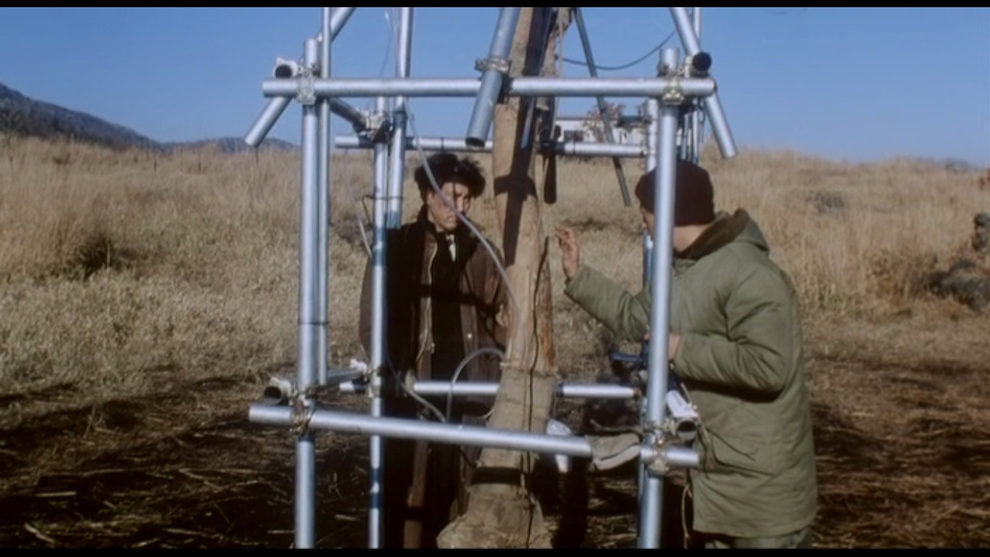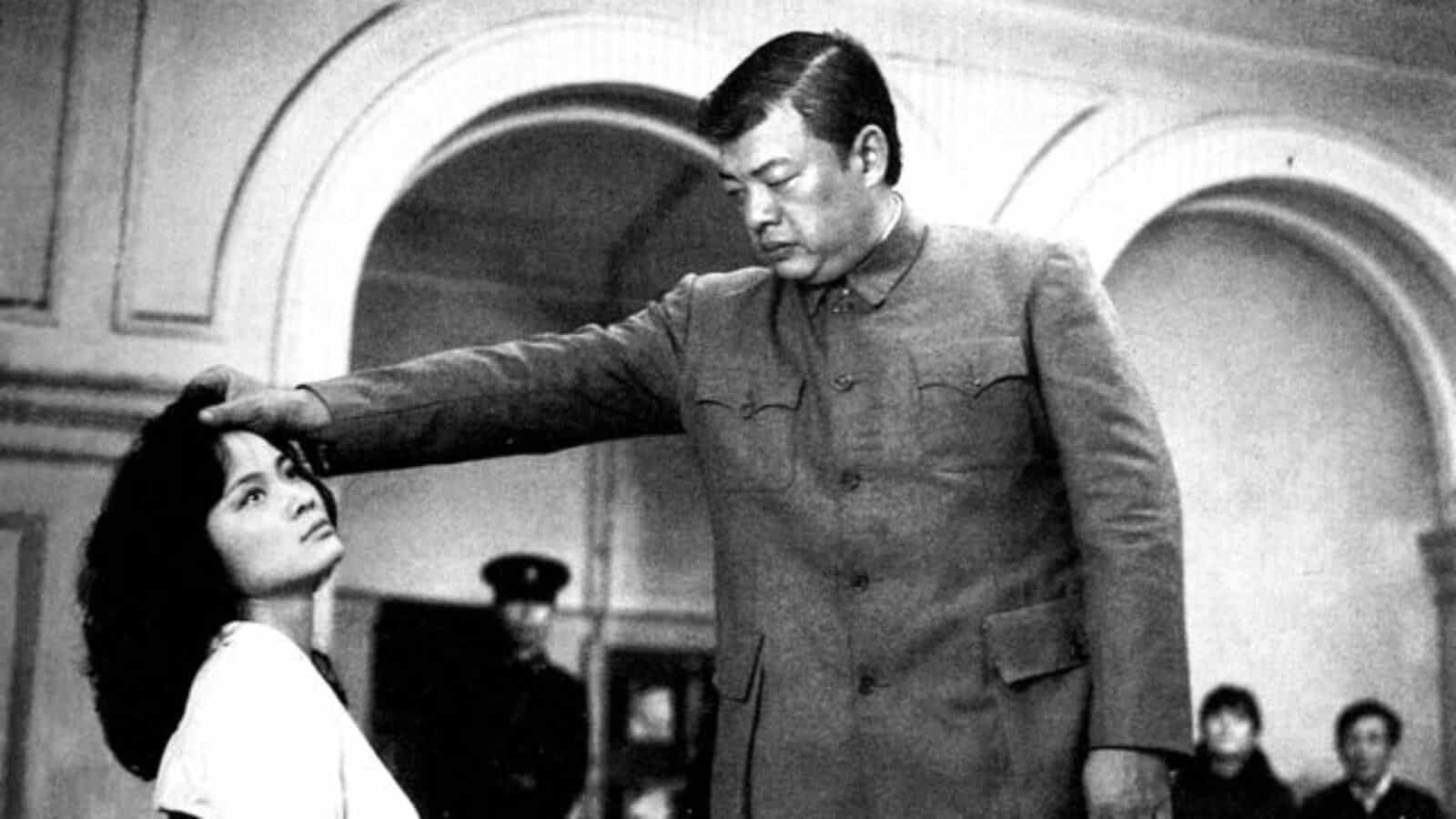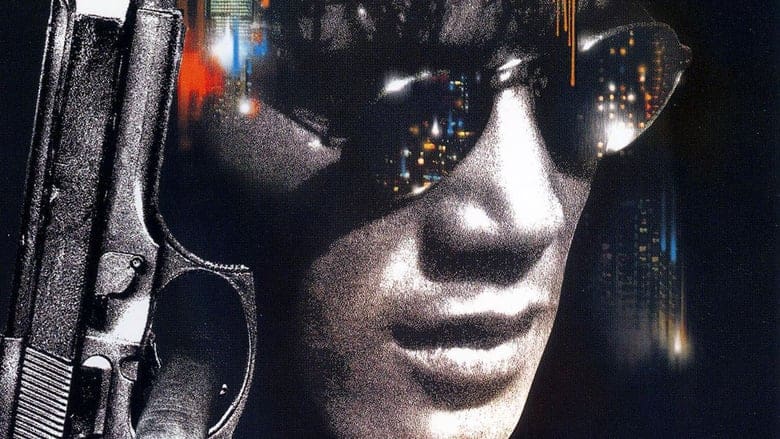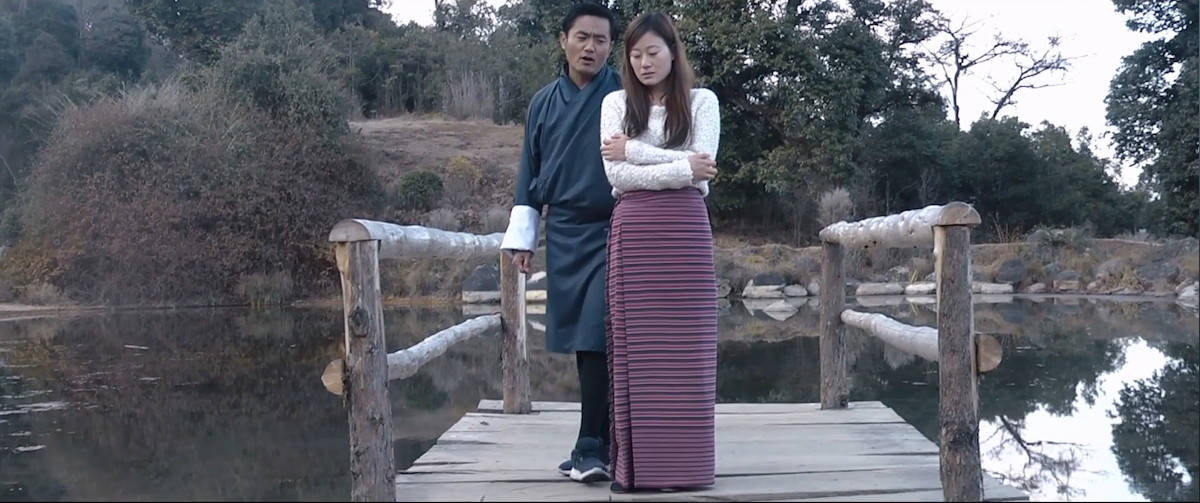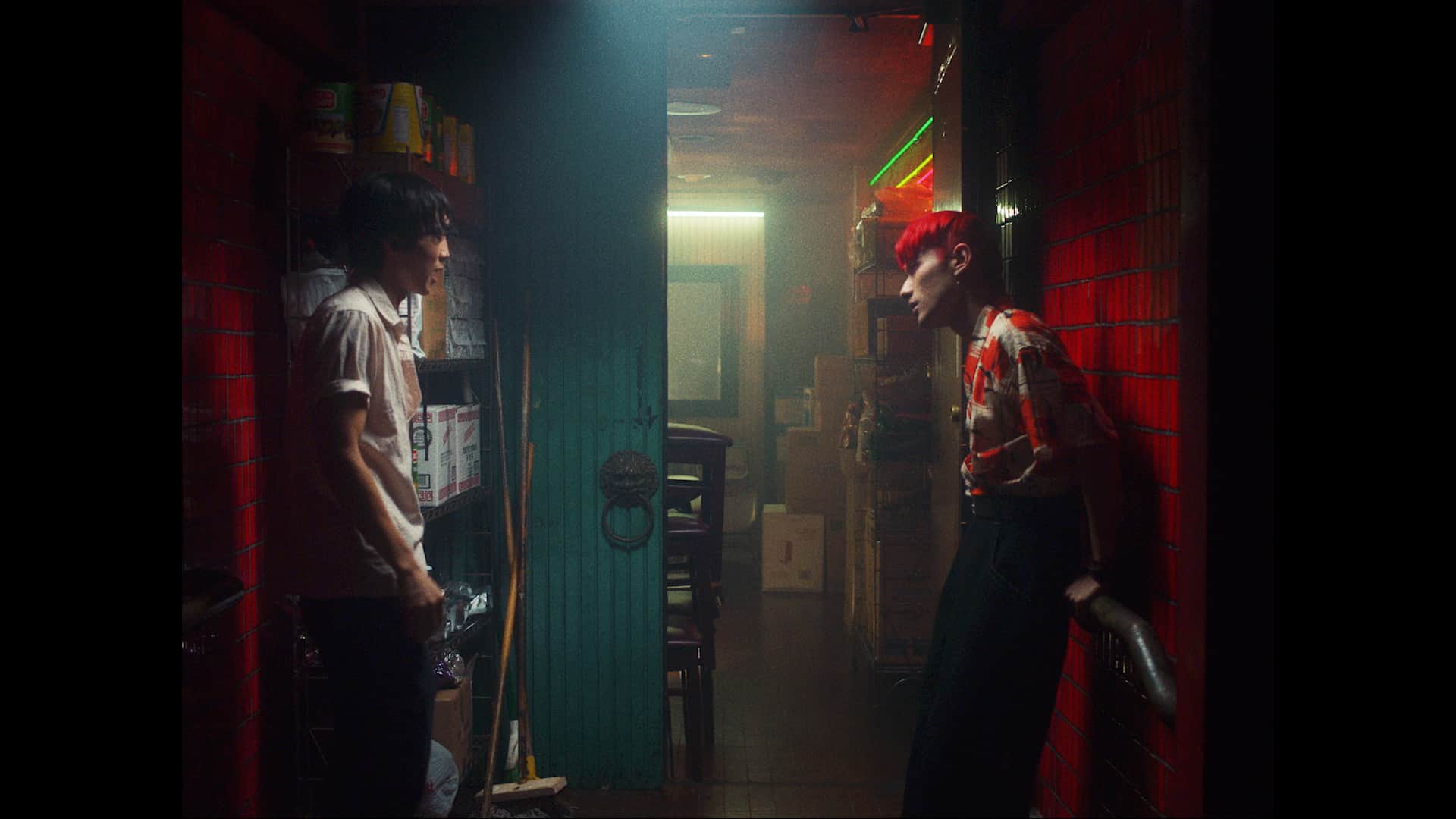by Spencer Nafekh-Blanchette
In some ways, parallels can be drawn between Kiyoshi Kurosawa's movies “Charisma” and “Cure.” They were released around the same time, and both star Koji Yakusho in a leading role as a disgruntled police officer. However, in many ways these two titles are nothing alike: While “Cure” is a mystery thriller with a followable plot which becomes more convoluted as time progresses, “Charisma” is an interpretive cinematic experience which demands imagination from start to finish. And although “Cure” is oftentimes considered a masterpiece, “Charisma” is an often overlooked essential in Kurosawa's filmography.

In the very first scene of the movie, Goro Yabuike, a washed-up negotiator with the police force, is faced with the task of mediating a hostage situation where a man is holding a member of parliament at gunpoint. When Yabuike asks the unnamed man what his purpose is, he replies by writing “Restore the Rules of the World” on a sheet of paper. Although Yabuike pulls out his pistol and aims it, he finds himself unable to shoot the radical; instead, he merely replies “I'll tell them your message,” and begins to walk out of the room. This results in the radical killing his hostage, but only before getting shot on sight by additional police officers who arrive at the crime scene.
Fans of Kurosawa's noir style might be deceived by these first three minutes. As “Charisma” continues, the movie's art house essence is revealed through a storyline which travels from the uncanny to the absurd. Any effort to think of the plotline in practical terms quickly becomes lost, as Yabuike leaves the city and enters a forest where he meets a camp of people with conflicting opinions about the future of a toxic tree named Charisma. A lively woman named Mitsuko believes that Charisma is toxic and will eventually result in the death of the entire ecosystem surrounding it, whereas a former sanitarium patient named Naoto Kiriyama believes its life should be spared, regardless of the way it might damage its surroundings.
Although there are moments where “Charisma” feels inconsistent and jarring, the movie often works effectively as a captivating thematic exploration of survival and murder, where director Kiyoshi Kurosawa examines the ethics surrounding taking life in order to prevent death. As a negotiator working with the police in the midst of a moral dilemma, Goro Yabuike examines his role as an instigating force between the living and the dead; a saviour as well as a punisher.
“Charisma” hits the ground running with its incendiary opening scene, but mainly showcases Kiyoshi Kurosawa's signature slow pacing with drawn-out shots and moments of extensive silence. However, despite the fact that Kurosawa's films typically slow things down to create moments where viewers should feel afraid or uncomfortable, “Charisma” uses its slow pacing to create moments of reflection and deep contemplation. It is a movie that consistently keeps viewers engaged regardless of its slow unraveling, though, because no scene is placed without purpose, and there is always something at the center of each shot to intrigue and to fascinate. Although few, there are also moments of self-awareness throughout “Charisma,” where an ambiguous director is mentioned, as though the characters themselves know that they are taking part in the creation of a movie.
With an original story written and produced by Kiyoshi Kurosawa, big time fans will be able to appreciate “Charisma” as a creative work which manifests itself almost entirely out of the mind's eye of the prolific director. The movie's set design features many rooms of an abandoned sanitarium in a state of decay, with a focus on dirty, broken and neglected rooms, all of which have become a trademark of Kurosawa's over the years. Yet the movie's surreal and pensive atmosphere could not be achieved if Kurosawa didn't collaborate with cinematographer Junichiro Hayashi, who is known for his contributions in critically acclaimed J-horror titles such as “Dark Water” and “Ring.”
Koji Yakusho's role as a tired and undecided police negotiator is different from his role as a rugged detective in Kurosawa's films “Cure” and “Retribution.” Instead of these crime-thriller roles which feature him tirelessly looking for leads and new evidence, “Charisma” presents him as an exhausted man in a moral qualm, calmly wandering through a bizarre metaphysical world as he interacts with people who may or may not exist in actual reality. The most memorable of these characters are the strangely vibrant Jinbo sisters, played by Yoriko Doguchi and Jun Fubuki.
Kiyoshi Kurosawa dives head first into the world of art house expressionism with “Charisma,” which can serve as an allegory for individual turmoil or just as easily represent problems of a greater socio-political scale. It is far from Kurosawa's best work with some displaced moments where his intentions feel unclear, but “Charisma” is a movie which is unapologetically unique nonetheless.


